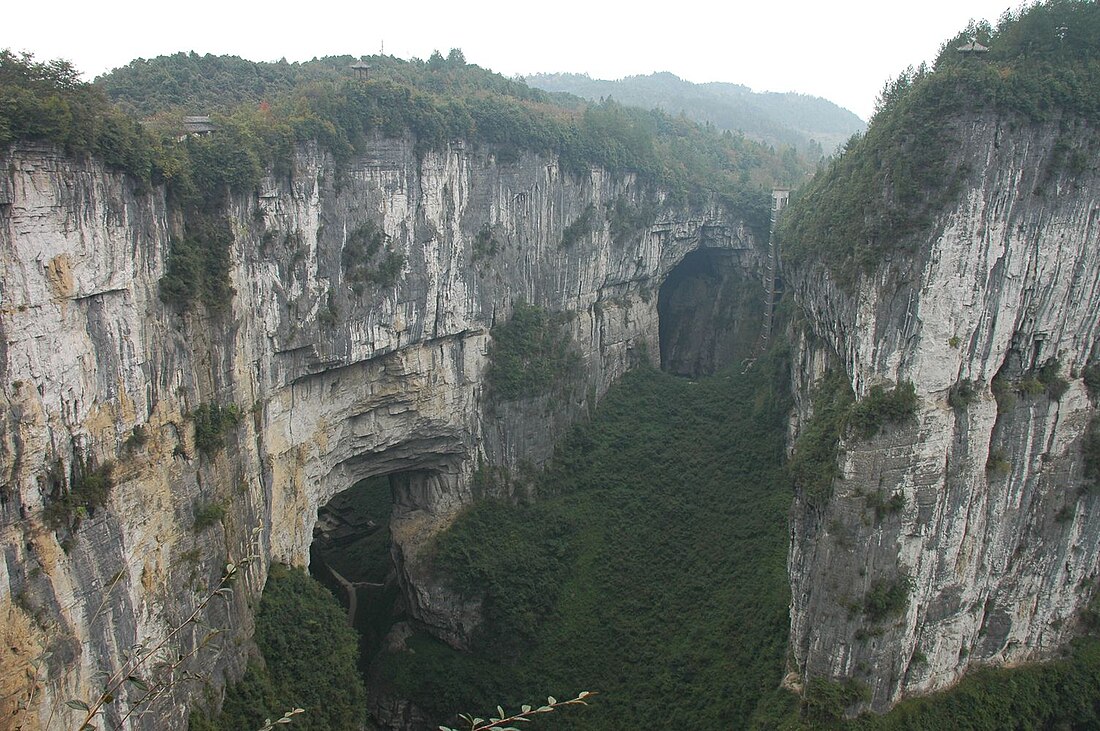Top Qs
Timeline
Chat
Perspective
Three Natural Bridges
Set of natural bridges in China From Wikipedia, the free encyclopedia
Remove ads

The Three Natural Bridges (simplified Chinese: 天生三桥; traditional Chinese: 天生三橋; pinyin: Tiānshēng Sān Qiáo) are a series of natural limestone bridges located in Xiannüshan Town (仙女山镇), Wulong District, Chongqing Municipality, China.[1] They lie within the Wulong Karst National Geology Park, itself a part of the South China Karst-Wulong Karst UNESCO World Heritage Site.[2] In Chinese, the bridges are all named after dragons, namely Tianlong (Chinese: 天龙桥; lit. 'Sky Dragon') Qinglong (青龙桥; 'Azure Dragon') and Heilong (黑龙桥; 'Black Dragon').[3][4]
Remove ads
Description


Spanning the Yangshui River, a tributary of the Wu River, the bridges are at the centre of a 20 km2 (7.7 sq mi) conservation area which also includes:
- Qinglong Tiankeng (青龙天坑);
- Shenying Tiankeng (神鹰天坑);
- Yangshui River Karst Canyon (羊水河喀斯特峡谷);
- Longshui Gorge (龙水峡地缝);
- Central Shiyuan Tiankeng (中石院天坑);
- Lower Shiyuan Tiankeng (下石院天坑);
- Seventy-two Branch Cave (七十二岔洞);
- Longquan Cave (龙泉洞);
- Immortal Cave (仙人洞);
- Hidden Monkey Stream (猴子坨伏流);
- Hidden Baiguo Stream (白果伏流).
Given that the distance between the upper end of the Tianlong Bridge and the lower end of the Heilong Bridge is only 1,500 m (4,900 ft), these are not the longest natural bridges. Between the bridges lie the Qinglong and Shenying tiankengs which have a depth of 276–285 metres and a circumference of 300–522 metres.
Remove ads
Dimensions
Remove ads
See also
References
External links
Wikiwand - on
Seamless Wikipedia browsing. On steroids.
Remove ads

